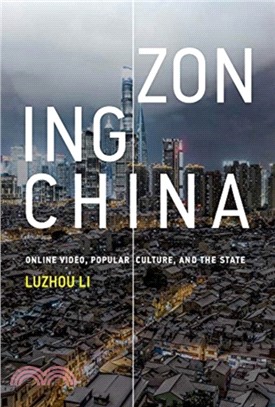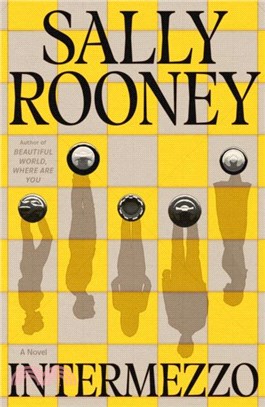Zoning China ― Online Video, Popular Culture, and the State
商品資訊
系列名:Information Policy
ISBN13:9780262043175
出版社:Mit Pr
作者:Luzhou Li
出版日:2019/12/17
裝訂/頁數:精裝/312頁
規格:22.9cm*15.2cm (高/寬)
定價
:NT$ 1520 元優惠價
:79 折 1201 元
無庫存,下單後進貨(到貨天數約30-45天)
下單可得紅利積點:36 點
商品簡介
相關商品
商品簡介
An examination of "cultural zoning" in China considers why government regulation of online video is so much more lenient than regulation of broadcast television. In Zoning China, Luzhou Li investigates why the Chinese government regulates online video relatively leniently while tightly controlling what appears on broadcast television. Li argues that television has largely been the province of the state, even as the market has dominated the development of online video.
Thus online video became a space where people could question state media and the state's preferred ideological narratives about the nation, history, and society. Li connects this relatively unregulated arena to the "second channel" that opened up in the early days of economic reform-piracy in all its permutations. She compares the dual cultural sphere to China's economic zoning; the marketized domain of online video is the cultural equivalent of the Special Economic Zones, which were developed according to market principles in China's coastal cities.
Li explains that although the relaxed oversight of online video may seem to represent a loosening of the party-state's grip on media, the practice of cultural zoning in fact demonstrates the the state's strategic control of the media environment. She describes how China's online video industry developed into an original, creative force of production and distribution that connected domestic private production companies, transnational corporations, and a vast network of creative labor from amateurs to professional content creators. Li notes that China has increased state management of the internet since 2014, signaling that online and offline censorship standards may be unified.
Cultural zoning as a technique of cultural governance, however, will likely remain.
Thus online video became a space where people could question state media and the state's preferred ideological narratives about the nation, history, and society. Li connects this relatively unregulated arena to the "second channel" that opened up in the early days of economic reform-piracy in all its permutations. She compares the dual cultural sphere to China's economic zoning; the marketized domain of online video is the cultural equivalent of the Special Economic Zones, which were developed according to market principles in China's coastal cities.
Li explains that although the relaxed oversight of online video may seem to represent a loosening of the party-state's grip on media, the practice of cultural zoning in fact demonstrates the the state's strategic control of the media environment. She describes how China's online video industry developed into an original, creative force of production and distribution that connected domestic private production companies, transnational corporations, and a vast network of creative labor from amateurs to professional content creators. Li notes that China has increased state management of the internet since 2014, signaling that online and offline censorship standards may be unified.
Cultural zoning as a technique of cultural governance, however, will likely remain.
主題書展
更多
主題書展
更多書展今日66折
您曾經瀏覽過的商品
購物須知
外文書商品之書封,為出版社提供之樣本。實際出貨商品,以出版社所提供之現有版本為主。部份書籍,因出版社供應狀況特殊,匯率將依實際狀況做調整。
無庫存之商品,在您完成訂單程序之後,將以空運的方式為你下單調貨。為了縮短等待的時間,建議您將外文書與其他商品分開下單,以獲得最快的取貨速度,平均調貨時間為1~2個月。
為了保護您的權益,「三民網路書店」提供會員七日商品鑑賞期(收到商品為起始日)。
若要辦理退貨,請在商品鑑賞期內寄回,且商品必須是全新狀態與完整包裝(商品、附件、發票、隨貨贈品等)否則恕不接受退貨。
























